|
Bank of America Has $100 Billion Paper Loss on Bonds. Upstart Holdings Revenue Drops by 63%. Is the banking crisis really over? (No, the Heartland Tri-State Bank of Kansas failed last Thursday, on July 28, 2023.) Why does this matter to you? What can/should you do about it? Here are the things we’ll cover. Bond Losses Affect All of Us Upstart Holdings PacWest, Heartland Tri-State Bank and Community Banking Faith and Creditworthiness Is Your Bank Close to Becoming a Junk Bond? A Very High-Profile Credit Downgrade Be Careful of Outstanding Earnings Reports in the Financial Industry And here is additional information on each point. Bond Losses Affect All of Us Even if we are not a Bank of America customer or live in another country, the bond losses are important to know about and factor into our own wealth plans. (If you are a Bank of America client, look at the credit scores and leverage of the other banks before switching.) Why? Because most of us have bond losses in our own retirement plan (even those of us who live outside of the U.S.). The safe side of our wealth plan, where bonds traditionally are placed, is not supposed to lose money. That puts all of us at greater risk in the next recession, if we don’t take steps to protect our wealth now. Our team has been warning for over a decade that we weren’t being paid to take on the risk of long-term bonds. Many of these holdings have terms of 35 years or more, meaning we don’t get our money back until well beyond our own expiry date. That’s why it’s vital to understand exactly what we own and why, not just on the at-risk, stock/equity/fund side, but also on the “safe” side of our wealth plan. (Join us at our Oct. 7-9, 2023 Investor Empowerment Retreat or consider receiving an unbiased 2nd opinion from me personally through our private coaching. Email [email protected] for pricing and information.) Upstart Holdings With regard to the Upstart Holdings challenges, many people are still relying upon Reddit, social media ads, emails, get rich quick schemes and hot tips from friends and family – hoping to “win” some money during the current Wall Street rally. Chasing gains, hot tips, Hail Mary’s and other desperate acts are more likely to lose money than to make us millionaires. Upstart Holdings’ core business model of personal and auto loans isn’t working well in the current interest rate environment. Many people don’t want to borrow at the current interest rates, while others no longer qualify. The company’s revenues are down -63% year over year. The net loss in the most recent quarter was $129 million, and Upstart has been in the red for over a year now. Upstart Holdings was a meme stock whose price soared to $400/share in October of 2021, only to crash to a low of $12 merely a year later. It’s not surprising that someone is bragging about earning some gains on Reddit, perhaps in the hopes of generating another pump-and-dump opportunity. If you have holdings in this or any other meme stock or individual company that has lost so much, you might consider attending our retreat and learning how to invest in a time-proven strategy, rather than relying upon Shoot the Moon hopes that are thin on fundamentals, and are riding high on hot air. YOLOs can be fun when they work, but they shouldn’t be the entire plan. HODL is a last-century strategy that doesn’t work on today’s Wall Street rollercoaster. PacWest, Heartland Tri-State Bank and Community Banking Community banks are in distress. As the National Association of Realtors’ chief economist, Lawrence Yun, wrote on May 3, 2023, “The fast rate hikes by the Fed have upended the balance sheets of many small regional banks. They are becoming zombie-like banks, unable to lend even to good businesses as they are more concerned with balance sheet shuffling for survival.” Bond losses, uninsured deposits, rate hikes and the recent bank failures have anyone with cash feeling a bit jittery. So far, we’ve only seen four banks fail in 2023, with the Heartland Tri-State Bank of Kansas being the most recent (on 7.28.2023). Headlines are so focused on Wall Street gains that you might not have even heard there was another bank failure last week. PacWest took a significant hit in their most recent earnings report, with their revenue down by -84% year over here and a net loss of $207 million. The bank lost $1.2 billion in the 1st quarter of 2023, and has been cash negative for more than a year. They just completed a merger with Banc of California to strengthen their balance sheet, and are trying to reassure depositors that 81% of the money is FDIC-insured. However, that still leaves $5.3 billion uninsured. It’s important for all cash depositors to realize that the fine print is key. There’s a loophole in the coverage for all non-banks, including brokerages that promise FDIC-insurance. (Click to learn more about that.) The special exemption that was made for the Silicon Valley Bank uninsured depositors is unlikely to be repeated. (There was no mention of non-insured depositors being rescued in the two most recent bank failures.) The FDIC fine print hasn’t changed. Faith and Creditworthiness While 2Q earnings reports generally looked pretty good in the big banks, it’s important to understand that a lot of that relies upon financial engineering and government support. There are policies to help banks that have exposure to commercial real estate, a Federal Reserve facility that erases bond losses for a year (the Bank Term Funding Program), and a Homeowners Assistance Fund that saved 318,000 homes from foreclosure (with a price tag of $3.7 billion). In other words, government bailouts, not financial restraint or conservative underwriting practices, are largely responsible for the slowdown of bank failures. The impressive, recent rally in financial stocks has a lot of phantoms in the wings, including a spike in corporate bankruptcies. The banking industry is based upon a presumption of faith. When faith surrenders to fear, you get a run on the banks, which could cause a bank to fold, since banks have a small fraction of depositors’ cash on hand. (Watch It’s a Wonderful Life for a good tutorial on this.) Is Your Bank Close to Becoming a Junk Bond? So how much faith should we have in US banks? And are there banks in other countries that are more creditworthy? In February of this year, before the bank failures (and for years in my books and at our retreats), we warned that we were underweighting the U.S. financial industry. Over half of the S&P500 is at or near junk bond status, including a lot of U.S. banks, insurance companies and brokerages. It’s important to know that First Republic Bank was rated A- the week before it had to be rescued on March 16, 2023 (by a consortium of 11 large banks and a collective $30 billion buffer). On May 1, 2023, First Republic Bank was swallowed up by JP Morgan. (Noninsured depositors weren’t offered coverage from the FDIC.) So, First Republic Bank went from investment grade to failing without any warning. As you can see in the charts above, there are a lot of banks, insurance companies and brokerages that are rated BBB – the lowest rung of investment grade. A downgrade would make them a junk bond. There is no advance notice of the rating action. As long as people continue to pay their mortgages, car loans and credit card debt, and the charge-offs remain low, then we might get through a few more quarters of good bank earnings reports. However, it’s hard to imagine what will get these credit scores up and the debt/leverage more manageable, when GDP is expected to be less than 1.8% over the next few years (at best, assuming there is no recession) and there has been a surge in corporate bankruptcies in 2023. Financials have had a great recovery over the last quarter, mostly as a result of “Don’t fight the Fed” mentality on Wall Street. Things have stabilized (outside of the Kansas bank failure last Thursday) since the high-profile Silicon Valley Bank, Signature Bank and First Republic Bank failures of March and May. However, that doesn’t mean that all financial companies are out of the woods. We’re still underweighting U.S. financials in our sample pie charts. There are banks in other countries with higher credit ratings and higher yields. (Click to access that blog.) Join us at our Oct. 7-9, 2023 Financial Freedom Retreat for additional strategies and time-proven systems to employ in your wealth plan. (We spend one full day on What’s Safe.) A Very High-Profile Credit Downgrade Meanwhile, the U.S. could face a very high-profile credit downgrade, which could be coming in the next few weeks. Fitch Ratings has the USA AAA sovereign rating on a Negative Watch. Click to learn more in my blog. This would be negative for stocks and bonds, and potentially positive for precious metals and perhaps even crypto. Be Careful of Outstanding Earnings Reports in the Financial Industry First Citizens Bancshares assumed the assets and liabilities of Silicon Valley Bank. As a result of that one time event, their year-over-year revenue growth looks stunning, at 641%. However, it comes with a great deal of risk and a very low credit rating (BBB) with a negative outlook from S&PGlobal (click to read their commentary). So, even if you have learned our Stock Report Card system, you need to understand where the revenue gains are actually coming from, and be wary about whether or not those gains will be repeated in the next quarter, or if it was a one-time event, or if the liabilities are going to be a drain on profits and cause cash burn and losses in the months ahead – particularly if the economy weakens (as it is predicted to do). If you would like a copy of our updated Bank Stock Report Card, just email [email protected]. Bottom Line The Federal Reserve and government support are making things look a lot better for banks, credit unions, insurance companies and brokerages than they really are – at least temporarily. As we learned from Silicon Valley Bank, Signature Bank, First Republic Bank, and now the Heartland Tri-State Bank, the headlines come out of nowhere. If we wait for the headlines, it’s too late to protect our wealth. That is why we spend one full day on what is safe at our investor empowerment retreats. Earning a safe yield is tricky, and making sure that your deposits are federally insured is, as well. Tricky, but doable, once you learn time-proven, 21st Century strategies that are literally easy-as-a-pie-chart. Blind faith that someone else is protecting our wealth for us (like our financial planner) is a terrible idea right now because most managed plans simply do what the market does. That means that most of us already have a great deal of losses in bonds (where we’re not supposed to lose principal), and could be subject to losses in stocks in the event of another bear market or recession. Reading the fine print can be very confusing – if you’ve never had it broken down before. However, financial wisdom is cumulative. There are certain years when protecting our wealth is our most important job, worth far more than we can earn in many years at the office, punching a clock… Wisdom is the cure. The time is now. Join us for our October 7-9, 2023 online Financial Empowerment Retreat. Register by July 31, 2023 to receive the best price. If you’re interested in private coaching or an unbiased 2nd opinion before then, reach out now. September is often the worst performing month of the year, so it’s a good idea to be ahead of the headlines. Again, feel free to email [email protected] or call 310-430-2397. Our unbiased 2nd opinion details exactly what you own, with color codes to show you what’s toxic in your portfolio, what’s great, and what should be better diversified. You will have a blueprint of how to get safe, protected, hot and diversified. Why is it unbiased? We don’t sell financial products. We have no incentive to sell you something that might lose money or that you don’t need. Our business model is financial education, providing the news, information, and education that Main Street investors need to thrive and live a richer life.  Join us for our Online Financial Freedom Retreat. Oct. 7-9, 2023. Email [email protected] or call 310-430-2397 to learn more. Register by July 31, 2023 to receive the best price. Click for testimonials, pricing, hours & details.  Join us for our Restormel Royal Immersive Adventure Retreat. March 8-15, 2024. Email [email protected] to learn more. Register with friends and family to receive the best price. Click for testimonials, pricing, hours & details. There is very limited availability, and you must register early to ensure that you get the exact room you want. This retreat includes an all-access pass to all of our online training for a full year for two! 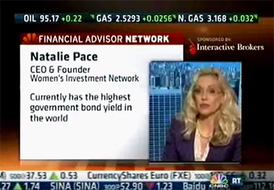 Natalie Wynne Pace is an Advocate for Sustainability, Financial Literacy & Women's Empowerment. Natalie is the bestselling author of The Power of 8 Billion: It's Up to Us and is the co-creator of the Earth Gratitude Project. She has been ranked as a No. 1 stock picker, above over 835 A-list pundits, by an independent tracking agency (TipsTraders). Her book The ABCs of Money remained at or near the #1 Investing Basics e-book on Amazon for over 3 years (in its vertical), with over 120,000 downloads and a mean 5-star ranking. The 5th edition of The ABCs of Money was released on September 17, 2021. Natalie Pace's easy as a pie chart nest egg strategies earned gains in the last two recessions and have outperformed the bull markets in between. That is why her Investor Educational Retreats, books and private coaching are enthusiastically recommended by Nobel Prize winning economist Gary S. Becker, TD AMERITRADE chairman Joe Moglia, Kay Koplovitz and many Main Street investors who have transformed their lives using her Thrive Budget and investing strategies. Click to view a video testimonial from Nilo Bolden. Check out Natalie Pace's Apple Podcast. Watch videoconferences and webinars on Youtube. Other Blogs of Interest The USA AAA Credit Rating is on a Negative Watch. Lithium. Essential to EV Life. I'm Just Not Good at Investing. Investors Ask Natalie. Should I Buy an S&P500 Index Fund? Investors Ask Natalie. Bonds Lost More than Stocks in 2022. Tesla's Model Y is the Bestselling Car in the World. 2023 Company of the Year Sell in May and Go Away? Do Cybersecurity Risks Create Investor Opportunities? Writers Strike, While Streaming CEOs Rake In Hundreds of Millions Annually. I Lost $100,000. Investors Ask Natalie. Artificial Intelligence Report. Micron Banned in China. Intel Slashes Dividend. Buffett Loses $23 Billion. Branson's Virgin Orbit Declares Bankruptcy. Insurance Company Risks. Schwab Loses $41 Billion in Cash Deposits. The Debt Ceiling Crisis. What's at Stake? Fiat. Crypto. Gold. BRICS. Real Estate. Alternative Investments. BRICS Currency. Will the Dollar Become Extinct? Empty Office Buildings & Malls. Frozen Housing Market. The Online Global Earth Gratitude Celebration 7 Green Life Hacks The Debt Ceiling. Will the U.S. Stop Paying Bills in June? Fossil Fuels Touch Every Part of Our Lives Are There Any Safe, Green Banks? 8 Fires the Federal Reserve Board Needs to Put Out. 7 Ways to Stash Your Cash Now. Lessons from the Silicon Valley Bank Failure. The 2 Best Solar Stocks Which Countries Offer the Highest Yield for the Lowest Risk? Rebalance By the End of March Solar, EVs, Housing, HSAs -- the Highest-Yield in 2023? Are You Anxious or Depressed over Money? Why We Are Underweighting Banks and the Financial Industry. You Stream all the Channels. Should You Invest, Too? NASDAQ is Still Down -26%. Are Meta & Snap a Buy? 2023 Bond Strategy Emotions are Not Your Friend in Investing Investor IQ Test Investor IQ Test Answers Bonds Lost -26%, Silver Held Strong. 2023 Crystal Ball for Stocks, Bonds, Real Estate, Cannabis, Gold, Silver. Tilray: The Constellation Brands of Cannabis New Year, New Healthier You Tesla's $644 Billion Fall From Mars Silver's Quiet Rally. Save Thousands Annually With Smarter Energy Choices Is Your FDIC-Insured Cash Really Safe? Money Market Funds, FDIC, SIPC: Are Any of Them Safe? My 24-Year-Old is Itching to Buy a Condo. Should I Help Him? The 12-Step Guide to Successful Investing. Gardeners Creating Sanctuary & Solutions in Food Deserts. The Bank Bail-in Plan on Your Dime. Rebalancing Your Nest Egg IQ Test. Answers to the Rebalancing Your Nest Egg IQ Test. Important Disclaimers Please note: Natalie Pace does not act or operate like a broker. She reports on financial news, and is one of the most trusted sources of financial literacy, education and forensic analysis in the world. Natalie Pace educates and informs individual investors to give investors a competitive edge in their personal decision-making. Any publicly traded companies or funds mentioned by Natalie Pace are not intended to be buy or sell recommendations. ALWAYS do your research and consult an experienced, reputable financial professional before buying or selling any security, and consider your long-term goals and strategies. Investors should NOT be all in on any asset class or individual stocks. Your retirement plan should reflect a diversified strategy, which has been designed with the assistance of a financial professional who is familiar with your goals, risk tolerance, tax needs and more. The "trading" portion of your portfolio should be a very small part of your investment strategy, and the amount of money you invest into individual companies should never be greater than your experience, wisdom, knowledge and patience. Information has been obtained from sources believed to be reliable. However, NataliePace.com does not warrant its completeness or accuracy. Opinions constitute our judgment as of the date of this publication and are subject to change without notice. This material is not intended as an offer or solicitation for the purchase or sale of any financial instrument. Securities, financial instruments or strategies mentioned herein may not be suitable for all investors. USA AAA is Still on Negative Credit Watch. Wall Street is hot this summer (after a spring of bank failures). Stocks are in a rally. The sun is still shining – perhaps a little too hot in a lot of areas. However, there are a few noteworthy economic storms on the horizon. Below are four major events and a new trend that are happening now and over the next few months to be aware of. I’m also noting how each event could impact various aspects of the economy, as well as our personal wallet. Here are the points I’ll discuss. The Fed Meeting July 26, 2023 USA AAA Credit on Negative Watch Student Loans Start Back Up Sept. 1, 2023 Bank Credit Tightening Fearmongering & Get Rich Quick Videos And here is more information on each point. The Fed Meeting On July 26, 2023, the Federal Reserve Board is widely expected to raise interest rates by another 25 basis points. There is pretty much a general consensus with the leading economists on this. Many of them also hope that it will be the last interest rate hike of the year. However, the Federal Reserve Board’s own projections from the June 2023 meeting suggest there could be another 25 basis points hike sometime this year. Impact: Higher interest rates will keep a lot of home buyers on the sidelines. They also make it difficult and more expensive for corporations to borrow money. The federal agencies and banks are working with distressed homeowners and corporations to try and help them get through this period. Low-rated commercial real estate companies are particularly in trouble, with office buildings still half empty in many U.S. cities. (Click to read my blog on CRE.) USA AAA Credit on Negative Watch The USA AAA credit rating was placed on a Negative Watch by Fitch Ratings on May 24, 2023, during the Debt Ceiling crisis. On June 3, 2023, the Debt Ceiling was raised. However, instead of removing the Negative Watch, Fitch issued a report on July 10, 2023 claiming that “a reluctance to raise taxes or reduce spending makes it difficult to narrow fiscal deficits consistent with stabilizing the [General Government] debt ratio.” On July 20, 2023, another report was published. In that report, James McCormack, the Managing Director, Global Head of Sovereigns at Fitch Ratings, wrote, “Twelve-month trailing rating changes may be positive for [Emerging Markets] and negative for [Developed Markets] in 2H23, based on the current Outlook distribution and year-to-date rating changes.” That doesn’t bode well for the U.S., as it is the only one of the eleven AAA countries with a Negative Watch in place. (Others are all rated Stable at this time.) It is typical for rating agencies to resolve the matter one way or another within a six-month period. That means that between now and November 24, 2023, we should expect some news on the matter. Summer can be the time when politicians, policymakers and ratings agencies try to bury bad news. (It’s no surprise that the Fed rate hike is expected for July, when many people are on vacation, rather than the June meeting.) As an example, when S&P Global downgraded the U.S. credit from AAA to AA+, it was on August 5, 2011 (a Friday) at 5:05 pm ET, while most of Wall Street was in Europe on holiday. See below for the current sovereign ratings of the Fitch AAAs (including 3 AAs – Canada, France and the U.K. Impact: In the months leading up to the S&P Global downgrade of the U.S. AAA credit rating on August 5, 2011, stocks took a nosedive, but ended up 13.5% on the year. 2011 was also the year that gold and silver hit highs. As we discuss in greater detail at our Investor Empowerment Retreat, gold is still close to its all-time high, while silver has plenty of room to run from its current price of $24.60/ounce, back to its all-time high of $48.70/ounce, set on April 28, 2011. Student Loans Start Back Up Sept. 1, 2023 Americans will have to start repaying their student loans effective September 1, 2023. According to the Federal Reserve Bank of New York, college debt is at $1.6 trillion. Impact: This could be an issue for all areas of the economy, as it will limit consumer spending on other things. Almost 70% of the US GDP is directly linked to consumer spending. There could also be more stress in credit card ($1 trillion) and auto loan debt ($1.56 trillion). This is negative for banks and all financial services companies, including fund companies, insurance companies, and pension providers. (Read my blog on why we are underweighting this industry. Join us at our Oct. 7-9, 2023 Retreat to learn how to underweight the industry!) Mortgages are likely to be a problem as well, particularly since most people under 40, many of whom still have student loans, are spending 30-50% of their income on housing. However, as might be expected, people will try to hang onto their home any way they can for as long as they can. Plus there is a Homeowners’ Assistance Fund in play, which has brought foreclosures to historic lows. So housing prices are not likely to go down meaningfully soon, even with this new development. Learn more about housing, CRE and REITs in this blog. Bank Credit Tightening Bank failures, rising interest rates and capital requirements are likely to tighten credit availability. Impact: This will slow the economy down. Expectations for U.S. GDP growth in 2023 are just 1.0%, with two quarters of contraction projected for the 2nd half of the year. Increased capital requirements, along with another rate hike, will be an even bigger issue for regional and community banks, which are already struggling from reduced mortgage income, CRE exposure and long-term bonds. It’s important to understand that the underlying issues that sank Silicon Valley Bank, First Republic, and Signature Bank are not limited to those institutions. Most banks, insurance companies, and even individuals have exposure to long-term bonds that are illiquid, negative-yielding and losing value. Bank of America had exposure to $100 billion in paper losses over their bond portfolio in the 1st quarter of 2023, according to The Financial Times (based on FDIC.gov data). Banks are getting bond support from a special Federal Reserve facility. Individuals are not. As we’ve been warning for the last decade, investors simply weren’t getting paid to take on the risk of these low-yielding, long-term contracts. (Some maturity dates are longer than we live!) It is possible to get a safe yield in the bond market these days. However, it’s important to be strategic about your plan. It’s a bit tricky. That’s why we spend one full day on what’s safe at our Investor Empowerment Retreat. The next one is October 7-9, 2023. Join us. You’ll get the best price if you register by July 31, 2023. Fearmongering & Get Rich Quick Videos In the morning, during my yoga workout routine, I play YouTube music. My Kirtan is always interrupted by ads. More and more these days I’m hearing ads for what you do when the U.S. dollar collapses, or “Why aren’t you investing in tax liens or gold,” and other fearmongering, or Get Rich Quick schemes. These videos are marketing campaigns. They scare the hell out of us in order to sell us into something. The truth is that the best wealth plan is properly diversified, protected, and hot. Yes, there is an element of truth to all of the fears that we have. However, the solution isn’t going to be a crypto coin, a gold coin, a tax lien, a Shoot the Moon YOLO stock, or any other hyped up ruse. Our pie chart system allows people to invest in gold, silver, crypto, YOLOs, and anything they want within reason, properly diversified, while also applying an automatic Buy Low, Sell High, Capture Gains strategy to the mix. In this way, we can always protect our wealth – remember we’ve been warning about bonds for a decade – while also participating in rallies, such as we’re experiencing today. Sometimes we have to endure a long Crypto Winter, or watch gold or silver languish, being the worst performers for a great deal of time, in order to ride on the crest of the wave when they soar back into favor. However, having a plan that keeps us in the game, encourages us to buy low, and prompts us to capture gains when they shoot the moon, is essential in the volatile times that we live in. Some of the low hanging fruit of protecting our wealth lies close to home. We can save thousands annually with smarter big-ticket budget choices (outlined at the retreat and in my books). The best interest rate could be found in generating our own energy, or embracing energy efficiency, or rethinking our transportation. The goal is to keep our money in our own family, rather than making the landlord, bank, debt collector, gas station, insurance company, utility provider, etc. rich at our own expense. These are more topics that we cover at the retreat. Bottom Line If we wait for the headline that the U.S. AAA credit rating has been downgraded by Fitch, it could be too late to protect our wealth. It’s important to be the boss of our money because managed wealth plans just ride the Wall Street rollercoaster, rising and falling with the waves that are stirred up by the whales, the large institutional investors and banks. 21st Century recessions can cost Main Street half of their wealth. That’s why it’s so important to make sure that we have a time proven, 21st-century plan in place now – that we fix the roof while the sun is still shining. The more fear, uncertainty, and doubt – FUD – the more ruses abound, and the more vulnerable we are because when we are in our fear, we’re willing to have blind faith that someone else is protecting our future. A better idea is to have wisdom and certainty that the plan we have in place is protecting our wealth, from all unexpected and unwelcome surprises, such as housing unaffordability, rising interest rates, student loans, bank failures, and even a potential downgrade of the USA AAA credit rating by Fitch Ratings. (I also offer unbiased 2nd opinions on your wealth plan through my private coaching.) Join us for our October 7-9, 2023 online Financial Empowerment Retreat. Register by July 31, 2023 to receive the best price. If you’re interested in private coaching or an unbiased 2nd opinion before then, reach out now. September is often the worst performing month of the year, so it’s a good idea to be ahead of the headlines. Again, feel free to email [email protected] or call 310-430-2397. Our unbiased 2nd opinion details exactly what you own, with color codes to show you what’s toxic in your portfolio, what’s great, and what should be better diversified. You will have a blueprint of how to get safe, protected, hot and diversified. Why is it unbiased? We don’t sell financial products. We have no incentive to sell you something that might lose money or that you don’t need. Our business model is financial education, providing the news, information, and education that Main Street investors need to thrive and live a richer life.  Join us for our Online Financial Freedom Retreat. Oct. 7-9, 2023. Email [email protected] or call 310-430-2397 to learn more. Register by July 31, 2023 to receive the best price. Click for testimonials, pricing, hours & details.  Join us for our Restormel Royal Immersive Adventure Retreat. March 8-15, 2024. Email [email protected] to learn more. Register with friends and family to receive the best price. Click for testimonials, pricing, hours & details. There is very limited availability, and you must register early to ensure that you get the exact room you want. This retreat includes an all-access pass to all of our online training for a full year for two! 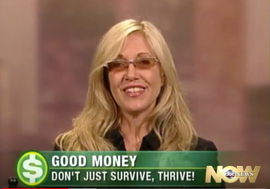 Natalie Wynne Pace is an Advocate for Sustainability, Financial Literacy & Women's Empowerment. Natalie is the bestselling author of The Power of 8 Billion: It's Up to Us and is the co-creator of the Earth Gratitude Project. She has been ranked as a No. 1 stock picker, above over 835 A-list pundits, by an independent tracking agency (TipsTraders). Her book The ABCs of Money remained at or near the #1 Investing Basics e-book on Amazon for over 3 years (in its vertical), with over 120,000 downloads and a mean 5-star ranking. The 5th edition of The ABCs of Money was released on September 17, 2021. Natalie Pace's easy as a pie chart nest egg strategies earned gains in the last two recessions and have outperformed the bull markets in between. That is why her Investor Educational Retreats, books and private coaching are enthusiastically recommended by Nobel Prize winning economist Gary S. Becker, TD AMERITRADE chairman Joe Moglia, Kay Koplovitz and many Main Street investors who have transformed their lives using her Thrive Budget and investing strategies. Click to view a video testimonial from Nilo Bolden. Check out Natalie Pace's Apple Podcast. Watch videoconferences and webinars on Youtube. Other Blogs of Interest Lithium. Essential to EV Life. I'm Just Not Good at Investing. Investors Ask Natalie. Should I Buy an S&P500 Index Fund? Investors Ask Natalie. Bonds Lost More than Stocks in 2022. Tesla's Model Y is the Bestselling Car in the World. 2023 Company of the Year Sell in May and Go Away? Do Cybersecurity Risks Create Investor Opportunities? Writers Strike, While Streaming CEOs Rake In Hundreds of Millions Annually. I Lost $100,000. Investors Ask Natalie. Artificial Intelligence Report. Micron Banned in China. Intel Slashes Dividend. Buffett Loses $23 Billion. Branson's Virgin Orbit Declares Bankruptcy. Insurance Company Risks. Schwab Loses $41 Billion in Cash Deposits. The Debt Ceiling Crisis. What's at Stake? Fiat. Crypto. Gold. BRICS. Real Estate. Alternative Investments. BRICS Currency. Will the Dollar Become Extinct? Empty Office Buildings & Malls. Frozen Housing Market. The Online Global Earth Gratitude Celebration 7 Green Life Hacks The Debt Ceiling. Will the U.S. Stop Paying Bills in June? Fossil Fuels Touch Every Part of Our Lives Are There Any Safe, Green Banks? 8 Fires the Federal Reserve Board Needs to Put Out. 7 Ways to Stash Your Cash Now. Lessons from the Silicon Valley Bank Failure. The 2 Best Solar Stocks Which Countries Offer the Highest Yield for the Lowest Risk? Rebalance By the End of March Solar, EVs, Housing, HSAs -- the Highest-Yield in 2023? Are You Anxious or Depressed over Money? Why We Are Underweighting Banks and the Financial Industry. You Stream all the Channels. Should You Invest, Too? NASDAQ is Still Down -26%. Are Meta & Snap a Buy? 2023 Bond Strategy Emotions are Not Your Friend in Investing Investor IQ Test Investor IQ Test Answers Bonds Lost -26%, Silver Held Strong. 2023 Crystal Ball for Stocks, Bonds, Real Estate, Cannabis, Gold, Silver. Tilray: The Constellation Brands of Cannabis New Year, New Healthier You Tesla's $644 Billion Fall From Mars Silver's Quiet Rally. Save Thousands Annually With Smarter Energy Choices Is Your FDIC-Insured Cash Really Safe? Money Market Funds, FDIC, SIPC: Are Any of Them Safe? My 24-Year-Old is Itching to Buy a Condo. Should I Help Him? The 12-Step Guide to Successful Investing. Gardeners Creating Sanctuary & Solutions in Food Deserts. The Bank Bail-in Plan on Your Dime. Rebalancing Your Nest Egg IQ Test. Answers to the Rebalancing Your Nest Egg IQ Test. Important Disclaimers Please note: Natalie Pace does not act or operate like a broker. She reports on financial news, and is one of the most trusted sources of financial literacy, education and forensic analysis in the world. Natalie Pace educates and informs individual investors to give investors a competitive edge in their personal decision-making. Any publicly traded companies or funds mentioned by Natalie Pace are not intended to be buy or sell recommendations. ALWAYS do your research and consult an experienced, reputable financial professional before buying or selling any security, and consider your long-term goals and strategies. Investors should NOT be all in on any asset class or individual stocks. Your retirement plan should reflect a diversified strategy, which has been designed with the assistance of a financial professional who is familiar with your goals, risk tolerance, tax needs and more. The "trading" portion of your portfolio should be a very small part of your investment strategy, and the amount of money you invest into individual companies should never be greater than your experience, wisdom, knowledge and patience. Information has been obtained from sources believed to be reliable. However, NataliePace.com does not warrant its completeness or accuracy. Opinions constitute our judgment as of the date of this publication and are subject to change without notice. This material is not intended as an offer or solicitation for the purchase or sale of any financial instrument. Securities, financial instruments or strategies mentioned herein may not be suitable for all investors. Lithium. Essential to EV Life. About 80% of the lithium market is used for electric vehicle batteries, and electric vehicles are one of the fastest growing industries in the world today. So, which companies and which countries are the top providers, and should you invest now? Below are the things we’ll cover in this blog. You can watch my videoconference on this topic at YouTube.com/NataliePace. EV Sales Lithium Supply, Demand and Prices Lithium Companies Top Countries with Lithium Reserves Chile Battery Recycling and Materials Recovery Indonesia & Nickel Macro Concerns and Dollar-Cost Averaging And here is more information on each point. EV Sales Electric vehicle sales are on fire. They are expected to make up 18% of the global car market this year, rising from almost nothing in 2016. Within just a few short years, EVs will easily be at a third of the auto market. That means that the demand for lithium will continue to be quite strong. Lithium Supply, Demand and Prices Demand is expected to outpace supply by at least 3% this year. Therefore, although prices have dropped by half since November 2022 from $84.60/kg to $42.93/kg, they are expected to recover and increase about 44% this year, to $61.52/kg. The tight demand problem is expected to remain in play until 2027. By 2028, prices are expected to drop again below where they are today, sinking back to $36.22/kg. The high prices of 2022 could impact earnings growth of the lithium companies this year. Lithium Companies Albermarle (symbol: ALB) had year-over-year sales growth of 129%. Albermarle was far and away the rock star performer on the Lithium Stock Report card. Livent (symbol: LTHM) came in with an impressive 77% annual revenue growth rate, while Sociedad de Chimica y Minera (symbol: SQM) crawled forward with just 12.08% growth. SQM’s Chief Executive Officer, Ricardo Ramos, explained the slowdown in the quarterly earnings press release, writing “Advanced purchases in the previous quarter, the change in subsidies in China and the high level of stock across the battery supply chain led to a weaker demand, predominantly in China, in the beginning of the year.” Ramos expects demand to recover and reach at least 20% growth in the coming quarters. Based on the high lithium prices in 2022 and the year-over-year comparables, Albermarle adjusted their guidance for 2023. In the 1st quarter earnings press release, Albemarle CEO Kent Masters wrote, “We see strong sales volume growth for the rest of the year but have modified our guidance to reflect softening lithium market pricing.” The company is now expecting sales growth on an annualized basis to be a solid 35-55% (but cooling off significantly from the 1st quarter’s 129% growth). Albemarle also has a great price earnings ratio at 8. (If you’d like a copy of our Lithium Stock Report Card, email [email protected].) Top Countries with Lithium Reserves The countries with the most lithium reserves are Chile, Australia, Argentina, China, and the U.S. SQM, the 2nd largest lithium producer in the world, which is based out of Chile, has operations in Chile, Australia and China. Albermarle, the largest lithium company, has locations around the globe, including Chile, Australia, China and the U.S. Lithium Americas (symbol: LAC) is developing operations in Argentina and the U.S., and will restructure and split their company into two, based upon their agreement with General Motors. Lithium Americas is not yet producing battery-grade lithium. Chile Chile has been moving towards nationalization of their resources – not in full, but in public/private partnership, as part of their National Lithium Strategy. SQM’s current contract with the government ends in 2030. Albermarle’s ends in 2043. A spokesperson for the Chilean government has promised to respect the current contract with Albermarle. SQM has begun negotiations to extend their land lease. The announcement of the new lithium strategy by Chile’s government sparked selling of SQM stock. The current P/E of SQM is just 6, with a yield of a whopping 9%. The stock is trading close to a 52-week low. Of course, with the nationalization plan, Chile’s expected recession and the current negotiations, there is more risk with SQM than ALB. Battery Recycling and Materials Recovery Redwood Materials There has also been a rapid rise of battery recycling. According to a spokesperson for Redwood Materials, the company is recovering 95-98% of the elements, including nickel, cobalt, lithium, and copper. According to the usgs.gov, there are currently 44 lithium battery recycling plants in the United States and Canada, and 47 in Europe. Incidentally, JB Straubel, the CEO of Redwood Materials, is also the cofounder of Tesla. Indonesia & Nickel Nickel is another component needed for EVs. Prices are expected to hold steady where they are around $22,000-$22,500/ton. This has to do with a nickel surplus. (In early 2022, nickel prices soared to $43,000/ton.) The top country producer of nickel is Indonesia, with Australia and Indonesia, tied for the most reserves. ETFs I encourage you to read my blog on electric vehicles from June 25, 2023, where I talk about Tesla versus the Chinese automakers. The top-selling electric vehicle in China is BYD. That company is not publicly traded in the U.S. However, iShares has an electric vehicle and self-driving ETF, symbol IDRV, that offers the opportunity to focus on this industry, while also being diversified. The fund includes many Chinese EV makers, including BYD, Xpeng and Li Auto, as well as Tesla, Porsche and VW. When selecting an ETF, I strongly suggest that we know the credit worthiness of the fund company itself, rather than just searching for a lithium or nickel fund. You might end up with a scam, or a fund company that might be undercapitalized or fairly new to the market. Another way to have an ETF in this area would be to consider investing in the countries that are providing lithium, nickel and copper – all necessary materials for electrification. Ishares has an Indonesia, Australia and Peru ETF. Both Australia and Peru also offer a yield of about 5%. (Peru is the 2nd largest exporter of copper in the world.) Macro Concerns and Dollar-Cost Averaging When investing these days, it’s important to consider the macro environment, in addition to hot companies, countries and industries. A rising tide can lift all ships (such as happened this week). A sinking tide can cause shipwrecks. There are plenty of economic storms on the horizon (and in the wake of the bank failures of March and May). We’re overweighting 20% in our sample nest egg pie charts. (Email [email protected] if you’d like the free sample investing web app, where you can personalize your own pie chart.) If you are adding EVs, lithium and/or country ETFs to your plan, consider dollar-cost averaging in. This is something we discuss at our online Financial Freedom Retreat. The next one is Oct. 7-9, 2023. Join us! Bottom Line EVs, lithium and the countries that are providing the materials for this cleaner transportation trend could be worthy of being a hot slice in our wealth plan. It’s important, however, to have a strategy that protects our wealth (perhaps with an ETF and dollar-cost averaging). FYI: I want to point out that while EVs are more sustainable than ICE*, they have many factors that are not green. EVs, lithium, nickel, copper, etc. are part of the solution if we still want everyone to have a car. However, having every person in their own single-occupancy vehicle is madness in the city. (Cue the traffic jams, gridlock and road rage.) My favorite way to get around is walking, biking or metro, usually with a backpack to pick up essentials. If you’d like to immerse yourself in a sustainability adventure, consider joining as at our Restormel Royal Manor House Retreat in Cornwall, England March 8-15, 2024. *Internal Combustion Engines Join us for our October 7-9, 2023 online Financial Empowerment Retreat. Register by July 31, 2023 to receive the best price. If you’re interested in private coaching or an unbiased 2nd opinion before then, reach out now. September is often the worst performing month of the year, so it’s a good idea to be ahead of the headlines. Again, feel free to email [email protected] or call 310-430-2397. Our unbiased 2nd opinion details exactly what you own, with color codes to show you what’s toxic in your portfolio, what’s great, and what should be better diversified. You will have a blueprint of how to get safe, protected, hot and diversified. Why is it unbiased? We don’t sell financial products. We have no incentive to sell you something that might lose money or that you don’t need. Our business model is financial education, providing the news, information, and education that Main Street investors need to thrive and live a richer life.  Join us for our Online Financial Freedom Retreat. Oct. 7-9, 2023. Email [email protected] or call 310-430-2397 to learn more. Register by July 31, 2023 to receive the best price. Click for testimonials, pricing, hours & details.  Join us for our Restormel Royal Immersive Adventure Retreat. March 8-15, 2024. Email [email protected] to learn more. Register with friends and family to receive the best price. Click for testimonials, pricing, hours & details. There is very limited availability, and you must register early to ensure that you get the exact room you want. This retreat includes an all-access pass to all of our online training for a full year for two! 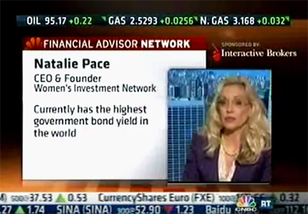 Natalie Wynne Pace is an Advocate for Sustainability, Financial Literacy & Women's Empowerment. Natalie is the bestselling author of The Power of 8 Billion: It's Up to Us and is the co-creator of the Earth Gratitude Project. She has been ranked as a No. 1 stock picker, above over 835 A-list pundits, by an independent tracking agency (TipsTraders). Her book The ABCs of Money remained at or near the #1 Investing Basics e-book on Amazon for over 3 years (in its vertical), with over 120,000 downloads and a mean 5-star ranking. The 5th edition of The ABCs of Money was released on September 17, 2021. Natalie Pace's easy as a pie chart nest egg strategies earned gains in the last two recessions and have outperformed the bull markets in between. That is why her Investor Educational Retreats, books and private coaching are enthusiastically recommended by Nobel Prize winning economist Gary S. Becker, TD AMERITRADE chairman Joe Moglia, Kay Koplovitz and many Main Street investors who have transformed their lives using her Thrive Budget and investing strategies. Click to view a video testimonial from Nilo Bolden. Check out Natalie Pace's Apple Podcast. Watch videoconferences and webinars on Youtube. Other Blogs of Interest I'm Just Not Good at Investing. Investors Ask Natalie. Should I Buy an S&P500 Index Fund? Investors Ask Natalie. Bonds Lost More than Stocks in 2022. Tesla's Model Y is the Bestselling Car in the World. 2023 Company of the Year Sell in May and Go Away? Do Cybersecurity Risks Create Investor Opportunities? Writers Strike, While Streaming CEOs Rake In Hundreds of Millions Annually. I Lost $100,000. Investors Ask Natalie. Artificial Intelligence Report. Micron Banned in China. Intel Slashes Dividend. Buffett Loses $23 Billion. Branson's Virgin Orbit Declares Bankruptcy. Insurance Company Risks. Schwab Loses $41 Billion in Cash Deposits. The Debt Ceiling Crisis. What's at Stake? Fiat. Crypto. Gold. BRICS. Real Estate. Alternative Investments. BRICS Currency. Will the Dollar Become Extinct? Empty Office Buildings & Malls. Frozen Housing Market. The Online Global Earth Gratitude Celebration 7 Green Life Hacks The Debt Ceiling. Will the U.S. Stop Paying Bills in June? Fossil Fuels Touch Every Part of Our Lives Are There Any Safe, Green Banks? 8 Fires the Federal Reserve Board Needs to Put Out. 7 Ways to Stash Your Cash Now. Lessons from the Silicon Valley Bank Failure. The 2 Best Solar Stocks Which Countries Offer the Highest Yield for the Lowest Risk? Rebalance By the End of March Solar, EVs, Housing, HSAs -- the Highest-Yield in 2023? Are You Anxious or Depressed over Money? Why We Are Underweighting Banks and the Financial Industry. You Stream all the Channels. Should You Invest, Too? NASDAQ is Still Down -26%. Are Meta & Snap a Buy? 2023 Bond Strategy Emotions are Not Your Friend in Investing Investor IQ Test Investor IQ Test Answers Bonds Lost -26%, Silver Held Strong. 2023 Crystal Ball for Stocks, Bonds, Real Estate, Cannabis, Gold, Silver. Tilray: The Constellation Brands of Cannabis New Year, New Healthier You Tesla's $644 Billion Fall From Mars Silver's Quiet Rally. Save Thousands Annually With Smarter Energy Choices Is Your FDIC-Insured Cash Really Safe? Money Market Funds, FDIC, SIPC: Are Any of Them Safe? My 24-Year-Old is Itching to Buy a Condo. Should I Help Him? The 12-Step Guide to Successful Investing. Gardeners Creating Sanctuary & Solutions in Food Deserts. The Bank Bail-in Plan on Your Dime. Rebalancing Your Nest Egg IQ Test. Answers to the Rebalancing Your Nest Egg IQ Test. Important Disclaimers Please note: Natalie Pace does not act or operate like a broker. She reports on financial news, and is one of the most trusted sources of financial literacy, education and forensic analysis in the world. Natalie Pace educates and informs individual investors to give investors a competitive edge in their personal decision-making. Any publicly traded companies or funds mentioned by Natalie Pace are not intended to be buy or sell recommendations. ALWAYS do your research and consult an experienced, reputable financial professional before buying or selling any security, and consider your long-term goals and strategies. Investors should NOT be all in on any asset class or individual stocks. Your retirement plan should reflect a diversified strategy, which has been designed with the assistance of a financial professional who is familiar with your goals, risk tolerance, tax needs and more. The "trading" portion of your portfolio should be a very small part of your investment strategy, and the amount of money you invest into individual companies should never be greater than your experience, wisdom, knowledge and patience. Information has been obtained from sources believed to be reliable. However, NataliePace.com does not warrant its completeness or accuracy. Opinions constitute our judgment as of the date of this publication and are subject to change without notice. This material is not intended as an offer or solicitation for the purchase or sale of any financial instrument. Securities, financial instruments or strategies mentioned herein may not be suitable for all investors. I’m Just Not Good at Investing. Recently, I was having a conversation with a coaching client, and she admitted to me that she felt like she just wasn’t good at investing. She wanted to stop thinking about things and keep everything safe. She’s not the only one with investing fatigue. It’s a common theme that I’m hearing. It’s easy to feel that way in today’s world. The last few years have been truly unprecedented, and quite a wild ride – one that would make most of us sick to our stomachs. By 2019, we’d been in the longest secular bull market in history. In 2020, we had a once-in-a-century pandemic, followed by the shortest recession on record. Thanks to easy money, bond bailouts and Stimmy checks, 2021 saw meme stonk and crypto fever. The S&P500® was on fire with gains of 27% in 2021, and then sank by -19.44% the following year. Even more concerning is that long-term government bonds lost -26% in 2022. (So good luck with the theory of just staying safe, without a carefully crafted plan. Bonds are typically considered safe.) There has been a lot of activity at the Federal Reserve Board and Treasury to prevent more bank failures. New plans and procedures have been announced for rescuing banks from bond losses, for rescuing distressed homeowners, and for bailing out commercial real estate companies that are in trouble. So far, these strategies seem to be working. (Stocks are up 14% since Silicon Valley Bank failed on March 10, 2023, despite the bank’s collapse being the 2nd largest in history.) 23 large banks passed their stress tests in June. However, The Federal Reserve Board’s Vice Chair for Supervision Michael S. Barr said, “We should remain humble about how risks can arise and continue our work.” That’s a long way of explaining that investing today is like trying to surf in a hurricane. What is an investor to do in that kind of environment? Stay safe on shore? Is the shore a flood zone that might carry us away, too? The answer is that there’s no choice really. We must have a plan that can work in a bull and a bear market, and we must know what is safe in a world where bonds (traditionally safe) are taking banks under. If our plan only works when stocks are high, we are risk of losing 50% or more of our wealth, which can spiral into all kinds of financial problems. I’m going to go through a 7-point plan that works in the volatile economic environment that we find ourselves in. Today’s blog will center on stocks, bonds, crypto and liquid assets. I plan to do a follow-up blog that deals with housing and real estate. 1. Did You Win in 2021? Did You Lose in 2022? 2. Never Confuse a Bull Market With Wisdom 3. FUD vs. Hubris or Complacency 4. A Time-Proven 21st-Century Plan 5. Stick to Our Knitting 6. Bonds are Tricky 7. An Unbiased Second Opinion And here is more information on each point. 1. Did You Win in 2021? Did You Lose in 2022? My coaching client had most of her money safe because she’s at that age when she can’t afford to lose her principle. (Keeping a percentage equal to our age safe, and overweighting safe in volatile times, is a good idea no matter what age we are.) The losses in her portfolio are about -2.4%. Compared to the broad market performance, bond performance, Wall Street rollercoaster performance, or most Main Street investors, she’s a genius. (It’s a time-proven, 21st Century strategy that is enthusiastically recommended by Nobel Prize winning economist Gary S. Becker.) She wasn’t very diversified because she only had one multinational growth stock and one other private equity holding. She felt great when stocks were high, and when they went down, she felt like a loser. However, this is such a small piece of her nest egg. That’s why it’s so important to see the big picture. No professional in any arena expects perfection. FYI: Most portfolios perform 2% below the market (due to fees), shadowing it up and down. Feeling great in 2021 and terrible in 2022 would be common. However, the pie chart system allows us to step off of the Wall Street rollercoaster and into a plan that works no matter which way the economic storms blow. 2. Never Confuse a Bull Market With Wisdom Never confuse a bull market with wisdom. Recessions are usually quite humbling for all investors, particularly so for those who haven’t kept enough safe. It’s just as important to understand that recessions aren’t the Apocalypse. In fact, when we keep enough safe, buying low at the bottom is a great idea. Most people don’t buy low because they can’t. They’ve lost too much money, and are struggling financially in all kinds of residual ways, including a much lower FICO score. There is no cash on hand to buy low, and they must hope and pray to make up losses. (It took the NASDAQ Composite Index almost 16 years to get above 5,000 after the Dot Com Recession.) This creates a belief that things are worse than they are. A lot of people sold low at the bottom of the Great Recession (March 2009), and then had FOMO in 2017-2018 when the headlines were screaming about all of the gains on Wall Street. There’s a lot of noise that jacks our emotions around. Everything except real estate lost value in 2022. Real estate has been in a bull market since 2011. However, since 75% of pandemic purchasers have buyer’s remorse, and over 6 million people are severely underwater on their mortgages, it might not be the win that it looks like on paper. I’ll explore real estate more deeply in an upcoming blog. Be careful if you have FOMO here, with real estate prices still near an all-time high, and largely unaffordable. 3. FUD vs. Hubris or Complacency In 2020 and 2021, we saw a great deal of Reddit gain porn in meme stocks and cryptocurrency. Things are now pretty cryptic, with a lot of people posting their losses and the explosions that make them even more graphic. The crypto winter has kept everyone in the freezer for 19 months so far. All emotions work against us in investing, whether we’re feeling confident, elated or afraid. There’s a lot of complacency going on, right now. My client freaked out during the pandemic, and actually sold some of her stock in May 2020 (very close to the pandemic bottom). That’s normal. When stocks are high, we want to stay at the party for as long as we can. The -35% drop in stocks between February and March 2020 alarmed a lot of people. Our pie chart system is designed to protect our wealth, to prompt us to sell high, and to nudge us to buy low. The pie chart would have prompted her to capture gains in late 2019. Then in March of 2020, at the pandemic bottom, she would have the liquidity and the emotional fortitude to buy more at a lower price (instead of selling low). That is the problem with emotions. They demand that we buy high and sell low, because that’s what the headlines are screaming at us to do. Most of us have far too much financial noise in our lives, jacking our emotions around. 4. A Time-Proven 21st-Century Plan Fear, uncertainty, doubt, regret, complacency, and hubris can all be tamed with our time-proven 21st-Century strategy. Once, twice or three times a year, simply mock up a pie chart of all of our liquid assets into their appropriate size and style classifications. Then use our free pie chart web app to personalize what our plan should look like. Once we place the two pie charts side-by-side, the system tells us when to capture gains high and buy more low. At our retreats, we teach more finesse, like overweighting safe if there are economic storms on the horizon, and what is safe in a world where bonds are tricky (and many are losing more than stocks). 5. Stick to Our Knitting We encourage having rebalancing times that are strategically placed, rather than chasing headlines. For instance, if we’re rebalancing once a year, we might do that at the end of April after the Spring Rally. If we are rebalancing twice a year, then perhaps it’s at the end of April, and again at the end of December, at the end of the Santa Rally. For those who wish to rebalance three times a year, we might add in the end of September to see if there are any Back to School Stock Sales. (September is historically the worst performing month of the year.) All of this will make more sense once we learn the life math that we all should’ve received in high school. The pie chart system takes the emotions out of investing, and puts our them on the right side of the trade. 6. Bonds are Tricky We’ve been underweighting bonds for over a decade because investors were simply not being paid to take on the risk. According to the FDIC (source: Financial Times), Bank of America recently had $100 billion in paper losses in their bond portfolio. Bonds were the bugaboos of the bank failures and bailouts of March, April and May. It is possible to get a return on investment in bonds now. However, it is tricky. (In mid-2022, we alerted everyone that the U.S. Treasury I Savings Bond was yielding 9.62%!) In short, we must keep the term shorts and the credit worthiness high. The best bond return is found in things that are not sold to us by a broker salesman, and some are yielding 15% or more. Again, staying safe, means that we’re not supposed to lose money, not even paper losses. That is why we spend one full day on what’s safe at our Investor Empowerment Retreat. 7. An Unbiased Second Opinion When we are depressed or sick, we seek medical help. If we’re feeling down about our investments, it’s a good idea to get an unbiased professional 2nd opinion about our current wealth plan. We have testimonials from people who bought real estate low and doubled their money (instead of losing a home, like 20 million did in the Great Recession). Others earned gains in the Great Recession when people around them lost more than half of their wealth. If you’re interested in reading what others say about our retreats and private coaching, email [email protected]. We’re happy to send you information that will beautify your bottom line and protect your assets. Bottom Line It’s easy to feel that we are not good at investing in today’s volatile economic climate. Soaring high, and then slamming back to Earth, and having losses in places, like bonds, where we are supposed to be safe, is daunting. However, those of us who push FUD, hubris, complacency, and perhaps even disgust aside, and lean into wisdom, right action, time-proven strategies, while seeking the help that we truly need to do these things (rather than having blind faith that someone else is doing this for us), will be very happy that we did. It is unlikely that the volatility in investing will be over soon given the amount of debt, leverage, inflation, war and expectations for recessions in many developed world countries, including the U.S. and Europe. Wisdom is the cure and the time is now. Join us for our October 7-9, 2023 online Financial Empowerment Retreat. Register by July 31, 2023 to receive the best price. If you’re interested in private coaching or an unbiased 2nd opinion before then, reach out now. September is often the worst performing month of the year, so it’s a good idea to be ahead of the headlines. Again, feel free to email [email protected]. Our unbiased 2nd opinion details exactly what you own, with color codes to show you what’s toxic in your portfolio, what’s great, and what should be better diversified. You will have a blueprint of how to get safe, protected, hot and diversified. Why is it unbiased? We don’t sell financial products. We have no incentive to sell you something that might lose money or that you don’t need. Our business model is financial education, providing the news, information, and education that Main Street investors need to thrive and live a richer life.  Join us for our Online Financial Freedom Retreat. Oct. 7-9, 2023. Email [email protected] to learn more. Register by July 31, 2023 to receive the best price. Click for testimonials, pricing, hours & details.  Join us for our Restormel Royal Immersive Adventure Retreat. March 8-15, 2024. Email [email protected] to learn more. Register with friends and family to receive the best price. Click for testimonials, pricing, hours & details. There is very limited availability, and you must register early to ensure that you get the exact room you want! This retreat includes an all-access pass to all of our online training for a full year for two!  Natalie Wynne Pace is an Advocate for Sustainability, Financial Literacy & Women's Empowerment. Natalie is the bestselling author of The Power of 8 Billion: It's Up to Us and is the co-creator of the Earth Gratitude Project. She has been ranked as a No. 1 stock picker, above over 835 A-list pundits, by an independent tracking agency (TipsTraders). Her book The ABCs of Money remained at or near the #1 Investing Basics e-book on Amazon for over 3 years (in its vertical), with over 120,000 downloads and a mean 5-star ranking. The 5th edition of The ABCs of Money was released on September 17, 2021. Natalie Pace's easy as a pie chart nest egg strategies earned gains in the last two recessions and have outperformed the bull markets in between. That is why her Investor Educational Retreats, books and private coaching are enthusiastically recommended by Nobel Prize winning economist Gary S. Becker, TD AMERITRADE chairman Joe Moglia, Kay Koplovitz and many Main Street investors who have transformed their lives using her Thrive Budget and investing strategies. Click to view a video testimonial from Nilo Bolden. Check out Natalie Pace's Apple Podcast. Watch videoconferences and webinars on Youtube. Other Blogs of Interest Should I Buy an S&P500 Index Fund? Investors Ask Natalie. Bonds Lost More than Stocks in 2022. Tesla's Model Y is the Bestselling Car in the World. 2023 Company of the Year Sell in May and Go Away? Do Cybersecurity Risks Create Investor Opportunities? Writers Strike, While Streaming CEOs Rake In Hundreds of Millions Annually. I Lost $100,000. Investors Ask Natalie. Artificial Intelligence Report. Micron Banned in China. Intel Slashes Dividend. Buffett Loses $23 Billion. Branson's Virgin Orbit Declares Bankruptcy. Insurance Company Risks. Schwab Loses $41 Billion in Cash Deposits. The Debt Ceiling Crisis. What's at Stake? Fiat. Crypto. Gold. BRICS. Real Estate. Alternative Investments. BRICS Currency. Will the Dollar Become Extinct? Empty Office Buildings & Malls. Frozen Housing Market. The Online Global Earth Gratitude Celebration 7 Green Life Hacks The Debt Ceiling. Will the U.S. Stop Paying Bills in June? Fossil Fuels Touch Every Part of Our Lives Are There Any Safe, Green Banks? 8 Fires the Federal Reserve Board Needs to Put Out. 7 Ways to Stash Your Cash Now. Lessons from the Silicon Valley Bank Failure. The 2 Best Solar Stocks Which Countries Offer the Highest Yield for the Lowest Risk? Rebalance By the End of March Solar, EVs, Housing, HSAs -- the Highest-Yield in 2023? Are You Anxious or Depressed over Money? Why We Are Underweighting Banks and the Financial Industry. You Stream all the Channels. Should You Invest, Too? NASDAQ is Still Down -26%. Are Meta & Snap a Buy? 2023 Bond Strategy Emotions are Not Your Friend in Investing Investor IQ Test Investor IQ Test Answers Bonds Lost -26%, Silver Held Strong. 2023 Crystal Ball for Stocks, Bonds, Real Estate, Cannabis, Gold, Silver. Tilray: The Constellation Brands of Cannabis New Year, New Healthier You Tesla's $644 Billion Fall From Mars Silver's Quiet Rally. Save Thousands Annually With Smarter Energy Choices Is Your FDIC-Insured Cash Really Safe? Money Market Funds, FDIC, SIPC: Are Any of Them Safe? My 24-Year-Old is Itching to Buy a Condo. Should I Help Him? The 12-Step Guide to Successful Investing. Gardeners Creating Sanctuary & Solutions in Food Deserts. The Bank Bail-in Plan on Your Dime. Rebalancing Your Nest Egg IQ Test. Answers to the Rebalancing Your Nest Egg IQ Test. Important Disclaimers Please note: Natalie Pace does not act or operate like a broker. She reports on financial news, and is one of the most trusted sources of financial literacy, education and forensic analysis in the world. Natalie Pace educates and informs individual investors to give investors a competitive edge in their personal decision-making. Any publicly traded companies or funds mentioned by Natalie Pace are not intended to be buy or sell recommendations. ALWAYS do your research and consult an experienced, reputable financial professional before buying or selling any security, and consider your long-term goals and strategies. Investors should NOT be all in on any asset class or individual stocks. Your retirement plan should reflect a diversified strategy, which has been designed with the assistance of a financial professional who is familiar with your goals, risk tolerance, tax needs and more. The "trading" portion of your portfolio should be a very small part of your investment strategy, and the amount of money you invest into individual companies should never be greater than your experience, wisdom, knowledge and patience. Information has been obtained from sources believed to be reliable. However, NataliePace.com does not warrant its completeness or accuracy. Opinions constitute our judgment as of the date of this publication and are subject to change without notice. This material is not intended as an offer or solicitation for the purchase or sale of any financial instrument. Securities, financial instruments or strategies mentioned herein may not be suitable for all investors. Should I Buy SPY. Investors Ask Natalie. Recently, we’ve had a lot of people ask if they should just invest in an S&P500® index fund. Here are 6 reasons why SPY can be a part of a well-designed plan, but should not fly solo. Investing is more than just buying SPY. Buying an S&P500® index fund is certainly better than not buying anything at all. However, if that’s our only investment, we could be: · Paying an arm and a leg in capital gains taxes · Riding a Wall Street rollercoaster · Missing out on hot industries · Investing in polluters and companies you don’t want to support Below are a few additional points to incorporate into our wealth plan. Invest in Tax-Protected Retirement Accounts The Power of Compounding Gains Diversify Keep a Percentage Equal to Your Age Safe Rebalance Once, Twice or Three Times a Year Green Investing And here is more information on each point. Invest in Tax-Protected Retirement Accounts Rich people don’t invest in regular brokerage accounts. They invest within their tax-protected retirement accounts. Peter Thiel reportedly has over $5 billion in his Roth IRA. The tax advantages are tremendous. When you invest in your brokerage account, you’re going to have to pay capital gains taxes anytime you sell for a profit. That doesn’t happen when you capture gains within your 401(k) or IRA, or for Canadians in their RSP or TPSA. Why not just Buy & Hold and never sell? As we age, we need to keep more safe. 21st recessions have seen the S&P500 lose more than half, and then take a lot of the bull market to crawl back to even. (It took the NASDAQ Composite Index 15 years to crawl back above 5000 after the Dot Com Recession.) As we get closer to retirement, we just can’t afford to lose that much. Everyone, even young professionals, experiences financial chaos or worse if their net worth drops significantly. Our FICO score plunges, and we might have to endure severe financial hardships, while we hope and pray to make up losses. It’s a good idea to have an IRA in addition to a 401(k), so that we are able to get better diversified. (Americans should also consider a Health Savings Account.) 401(k)s often have very limited options for investing and tie up our money while we work. Individual accounts allow us to invest in industries that might be very hot, like artificial intelligence, cyber security, electric vehicles or clean energy. Regular rebalancing with low or no trading fees are also hallmarks of IRAs that are held at an online discount brokerage. The Power of Compounding Gains A lot of people think they should wait until they pay off all their debt before they start investing. While we want to have a plan for paying off our debt, if that is all that we’re doing, we’re missing out on the power of compounding gains and increasing our wealth. As you can see in the chart below, even if we are only earning $40,000 a year, if we invest and earn a 10% annualized gain, we’ll become a millionaire by the time we retire. Investing is the best ticket to financial freedom. You might think that earning 10% annualized gains is a pipe dream, and over the next few years it probably is. (Our pie chart strategy is a lifesaver in slow growth and bear markets.) However, as you can see in the chart below, stocks earned 10% annualized over the last 30 years (if you had small caps in addition to large caps), bonds performed at 5-6% gains, and real estate was a shining star with over 8% annualized gains. So, adhering to the plan can make us a millionaire, even if we come from modest means. (We discuss the importance of investing in real estate at our retreat and in my books.) Since the assets to debt ratio is 30% of our FICO score, investing helps to improve our debt situation. Money in our retirement accounts is safe from most debt collectors, as well. A debt problem is a budgeting problem. If we don’t have enough money to fund our retirement accounts, then we need to learn more about how to adopt a Thrive Budget. (There’s a section in my book The ABCs of Money, 5th edition.) Smarter big-ticket choices are the key. Few of us are shopaholics. Many meme stock investors lost so much money that they’ve lost their enthusiasm for investing. Others are convinced they can get rich quickly with options. Meme stocks, options and individual companies are better thought of as education or fun money, rather than money while we sleep (our nest egg). They require a lot of due diligence and babysitting, and are higher risk than funds are. Diversify A well-diversified plan protects our wealth, earns a safe yield and enjoys tax-free capital gains. In bull markets, growth and capital gains can be king. In bear markets, we’ll be glad we kept enough safe (and that we know what’s safe in a Debt World). Having both value and growth funds allow us to buy on sale, while also investing in hot new industries. Trillion dollar companies add stability to our plan, while small caps add performance. Four hot slices allow us to overweight into industries that we think are going to outperform. On the other hand, if we are just investing in a SPY index, we only have one slice of the pie represented – a large cap blend fund. It’s difficult to see and capture gains when we’ve only got one fund. That puts us at risk of losing half or more of our wealth in 21st Century recessions. We teach these strategies in our online financial freedom retreats. The next one is October 7-9, 2023. Join us! Keep a Percentage Equal to Our Age Safe It’s important to keep a percentage equal to our age safe, money that is not invested in stocks, funds, equities, or anything that has a chance of losing money. Ideally, the safe side also earns some interest. When there are expectations of a bear market or a recession, it’s a good idea to overweight even more safe to protect our wealth. In today’s world, where long-term government bonds lost more than the S&P500® last year, it’s also important to know what is safe. With over half of the S&P500 at or near junk-bond status, there is a lot of credit risk in the world. And, clearly, if bonds are losing money, bonds and bond funds are not doing what they are supposed to do. The safe side of our portfolio is supposed to protect our principle. Getting safe is tricky in today’s world. There are a few opportunities to earn a safe yield. However, we must be strategic about it. (Think short-term and high creditworthiness.) Some of the best areas to earn a fantastic, safe yield are investments that our broker/salesman cannot sell us. We go over all of these safe strategies on day 3 of our Investor Empowerment Retreat. Rebalance Once, Twice or Three Times a Year Rebalancing is a very important part of our strategy. Each year we get a year older, and the percentage that we need to keep safe increases. As we get closer to retirement, we really can’t afford to have so much money riding on the Wall Street Roller Coaster. Regular rebalancing allows us to capture gains, in addition to making sure that we are preserving enough of our principle and staying properly diversified. Our pie chart system makes it very easy to rebalance. When a slice of our pie becomes two or three slices, it’s begging us to sell high. When a slice becomes a sliver, it’s prompting us to buy low. In this way we put our emotions on the right side of the trade. Without a time-proven system, our emotions can prompt us to do the opposite of what we should be doing. At the bottom of recessions, most people are tempted to sell low. At the end of a bull run, the headlines are screaming about the massive gains and everyone wants to buy in high. Green Investing The S&P500 Index does not screen out polluters. So if we’re interested in investing in companies that are healing the planet and divesting our holdings of companies that are harming the environment, we can’t just invest all of our nest egg in the SPY. The S&P Global E.S.G. index doesn’t work either. It’s actually missing the E (environment). There are no green companies in the index, and at least 20% are oil, natural gas, plastic, and chemical companies, and the industries that service them. Investing green is not as easy as just investing in self-proclaimed ESG or socially conscious fund companies. This is another thing that we cover in our Financial Freedom Retreat. Bottom Line This may sound like a lot of work, but it really is the life math that we all should’ve received in high school. The strategy is as easy-as-pie-chart, and the time commitment can be as small as one day a year, once we learn the system. Just as we must decide what kind of home we want to live in before we buy it, there’s a lot that goes into designing our dream financial home. However, once it is built, we get to move in and live there, knowing that we are safe and secure from any economic storms on the horizon. Wisdom is the cure and the time is now to know exactly what we own and why, and to have a properly diversified and protected plan in place. You can learn about this at our online Investor Empowerment Retreat October 7-9, 2023. If you are interested in receiving an unbiased 2nd opinion before you go away on vacation, call 310-430-2397 or email [email protected] for pricing and information. Our unbiased 2nd opinion details exactly what you own, with color codes to show you what’s toxic in your portfolio, what’s great, and what should be better diversified. You will have a blueprint of how to get safe, protected, hot and diversified. Why is it unbiased? We don’t sell financial products. We have no incentive to sell you something that might lose money or that you don’t need. Our business model is financial education, providing the news, information, and education that Main Street investors need to thrive and live a richer life.  Join us for our Online Financial Freedom Retreat. Oct. 7-9, 2023. Email [email protected] to learn more. Register by July 31, 2023 to receive the best price. Click for testimonials, pricing, hours & details.  Join us for our Restormel Royal Immersive Adventure Retreat. March 8-15, 2024. Email [email protected] to learn more. Register with friends and family to receive the best price. Click for testimonials, pricing, hours & details. There is very limited availability, and you must register early to ensure that you get the exact room you want! This retreat includes an all-access pass to all of our online training for a full year for two! 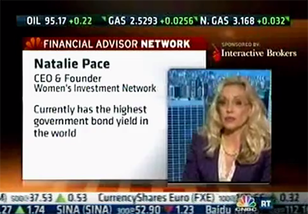 Natalie Wynne Pace is an Advocate for Sustainability, Financial Literacy & Women's Empowerment. Natalie is the bestselling author of The Power of 8 Billion: It's Up to Us and is the co-creator of the Earth Gratitude Project. She has been ranked as a No. 1 stock picker, above over 835 A-list pundits, by an independent tracking agency (TipsTraders). Her book The ABCs of Money remained at or near the #1 Investing Basics e-book on Amazon for over 3 years (in its vertical), with over 120,000 downloads and a mean 5-star ranking. The 5th edition of The ABCs of Money was released on September 17, 2021. Natalie Pace's easy as a pie chart nest egg strategies earned gains in the last two recessions and have outperformed the bull markets in between. That is why her Investor Educational Retreats, books and private coaching are enthusiastically recommended by Nobel Prize winning economist Gary S. Becker, TD AMERITRADE chairman Joe Moglia, Kay Koplovitz and many Main Street investors who have transformed their lives using her Thrive Budget and investing strategies. Click to view a video testimonial from Nilo Bolden. Check out Natalie Pace's Apple Podcast. Watch videoconferences and webinars on Youtube. Other Blogs of Interest Bonds Lost More than Stocks in 2022. Tesla's Model Y is the Bestselling Car in the World. 2023 Company of the Year Sell in May and Go Away? Do Cybersecurity Risks Create Investor Opportunities? Writers Strike, While Streaming CEOs Rake In Hundreds of Millions Annually. I Lost $100,000. Investors Ask Natalie. Artificial Intelligence Report. Micron Banned in China. Intel Slashes Dividend. Buffett Loses $23 Billion. Branson's Virgin Orbit Declares Bankruptcy. Insurance Company Risks. Schwab Loses $41 Billion in Cash Deposits. The Debt Ceiling Crisis. What's at Stake? Fiat. Crypto. Gold. BRICS. Real Estate. Alternative Investments. BRICS Currency. Will the Dollar Become Extinct? Empty Office Buildings & Malls. Frozen Housing Market. The Online Global Earth Gratitude Celebration 7 Green Life Hacks The Debt Ceiling. Will the U.S. Stop Paying Bills in June? Fossil Fuels Touch Every Part of Our Lives Are There Any Safe, Green Banks? 8 Fires the Federal Reserve Board Needs to Put Out. 7 Ways to Stash Your Cash Now. Lessons from the Silicon Valley Bank Failure. The 2 Best Solar Stocks Which Countries Offer the Highest Yield for the Lowest Risk? Rebalance By the End of March Solar, EVs, Housing, HSAs -- the Highest-Yield in 2023? Are You Anxious or Depressed over Money? Why We Are Underweighting Banks and the Financial Industry. You Stream all the Channels. Should You Invest, Too? NASDAQ is Still Down -26%. Are Meta & Snap a Buy? 2023 Bond Strategy Emotions are Not Your Friend in Investing Investor IQ Test Investor IQ Test Answers Bonds Lost -26%, Silver Held Strong. 2023 Crystal Ball for Stocks, Bonds, Real Estate, Cannabis, Gold, Silver. Tilray: The Constellation Brands of Cannabis New Year, New Healthier You Tesla's $644 Billion Fall From Mars Silver's Quiet Rally. Save Thousands Annually With Smarter Energy Choices Is Your FDIC-Insured Cash Really Safe? Money Market Funds, FDIC, SIPC: Are Any of Them Safe? My 24-Year-Old is Itching to Buy a Condo. Should I Help Him? The 12-Step Guide to Successful Investing. Gardeners Creating Sanctuary & Solutions in Food Deserts. The Bank Bail-in Plan on Your Dime. Rebalancing Your Nest Egg IQ Test. Answers to the Rebalancing Your Nest Egg IQ Test. Important Disclaimers Please note: Natalie Pace does not act or operate like a broker. She reports on financial news, and is one of the most trusted sources of financial literacy, education and forensic analysis in the world. Natalie Pace educates and informs individual investors to give investors a competitive edge in their personal decision-making. Any publicly traded companies or funds mentioned by Natalie Pace are not intended to be buy or sell recommendations. ALWAYS do your research and consult an experienced, reputable financial professional before buying or selling any security, and consider your long-term goals and strategies. Investors should NOT be all in on any asset class or individual stocks. Your retirement plan should reflect a diversified strategy, which has been designed with the assistance of a financial professional who is familiar with your goals, risk tolerance, tax needs and more. The "trading" portion of your portfolio should be a very small part of your investment strategy, and the amount of money you invest into individual companies should never be greater than your experience, wisdom, knowledge and patience. Information has been obtained from sources believed to be reliable. However, NataliePace.com does not warrant its completeness or accuracy. Opinions constitute our judgment as of the date of this publication and are subject to change without notice. This material is not intended as an offer or solicitation for the purchase or sale of any financial instrument. Securities, financial instruments or strategies mentioned herein may not be suitable for all investors. |
AuthorNatalie Pace is the co-creator of the Earth Gratitude Project and the author of The Power of 8 Billion: It's Up to Us, The ABCs of Money, The ABCs of Money for College, The Gratitude Game and Put Your Money Where Your Heart Is. She is a repeat guest & speaker on national news shows and stages. She has been ranked the No. 1 stock picker, above over 830 A-list pundits, by an independent tracking agency, and has been saving homes and nest eggs since 1999. Archives
July 2024
Categories |






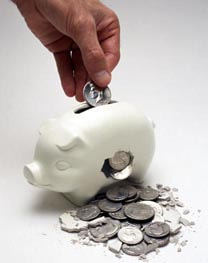
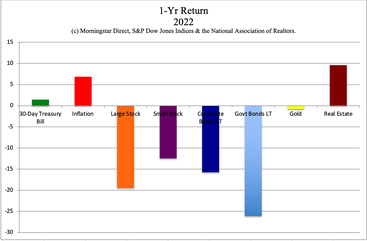
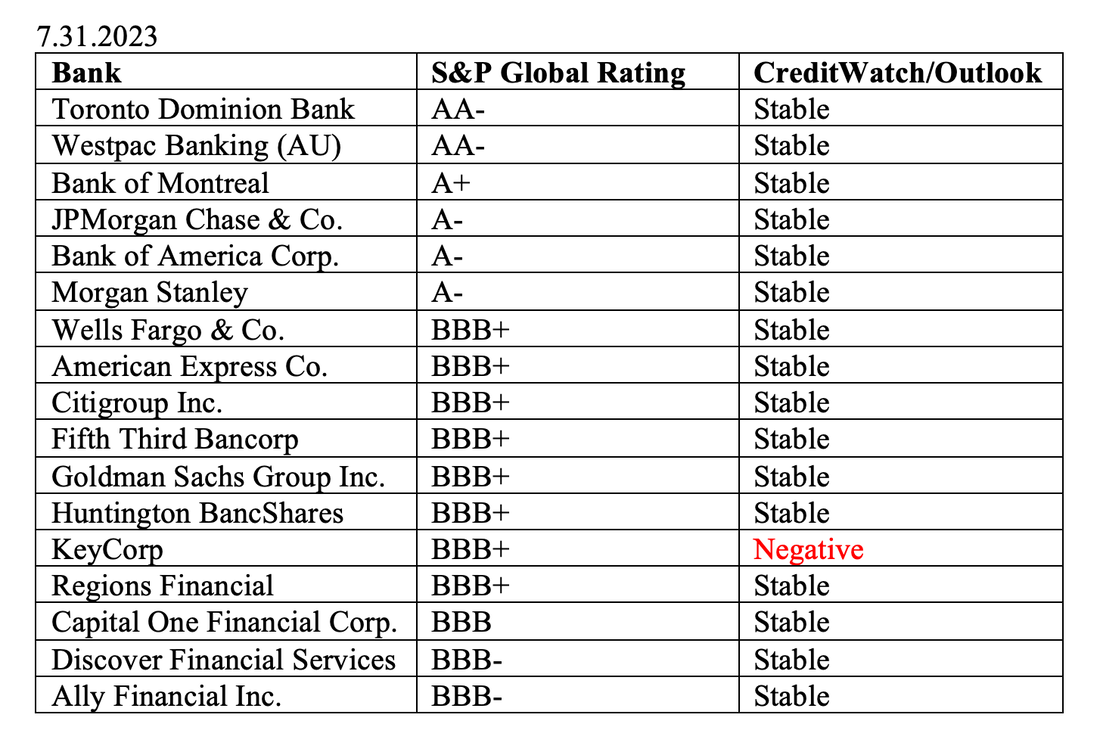
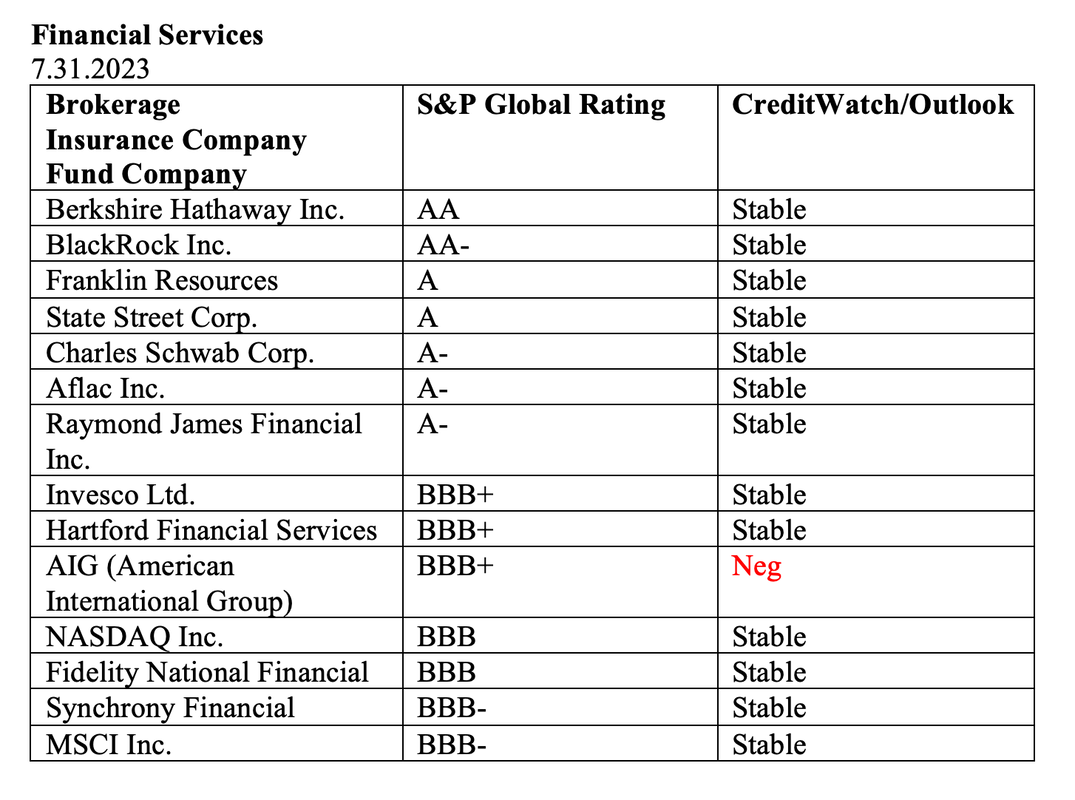

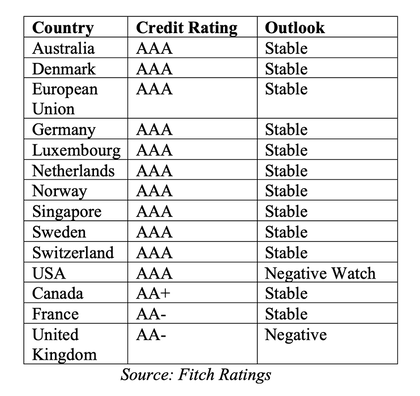

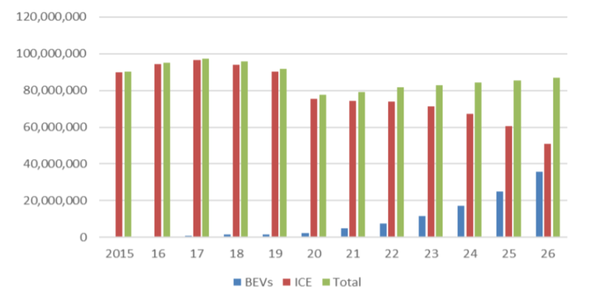
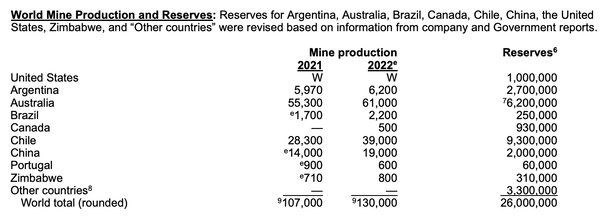
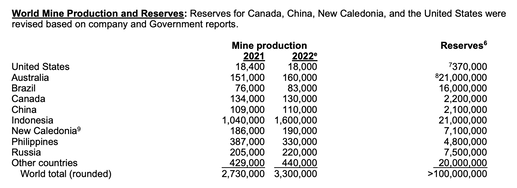

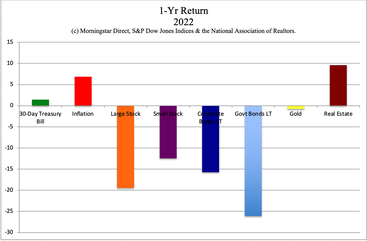
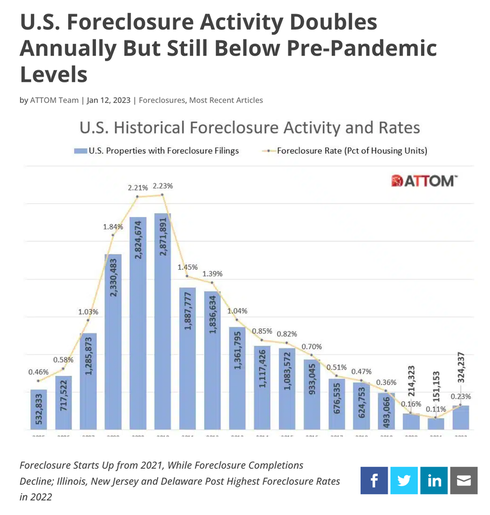
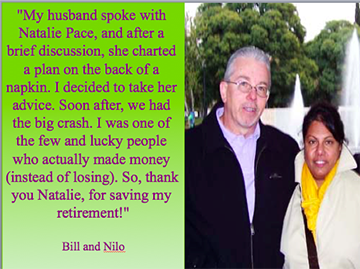

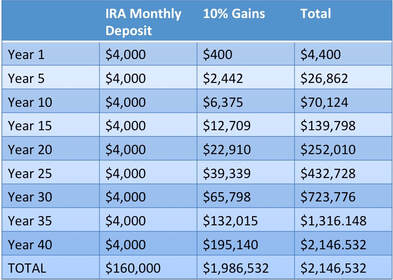
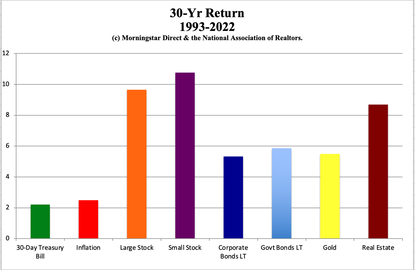
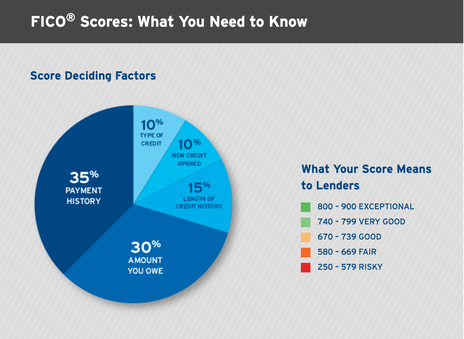
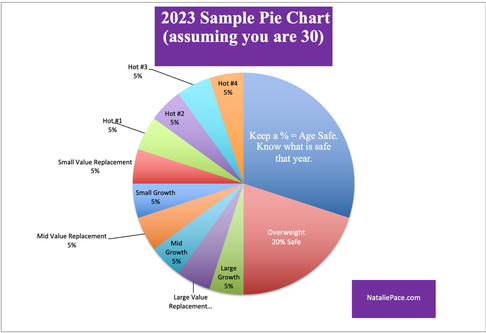
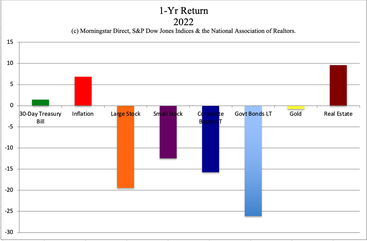
 RSS Feed
RSS Feed